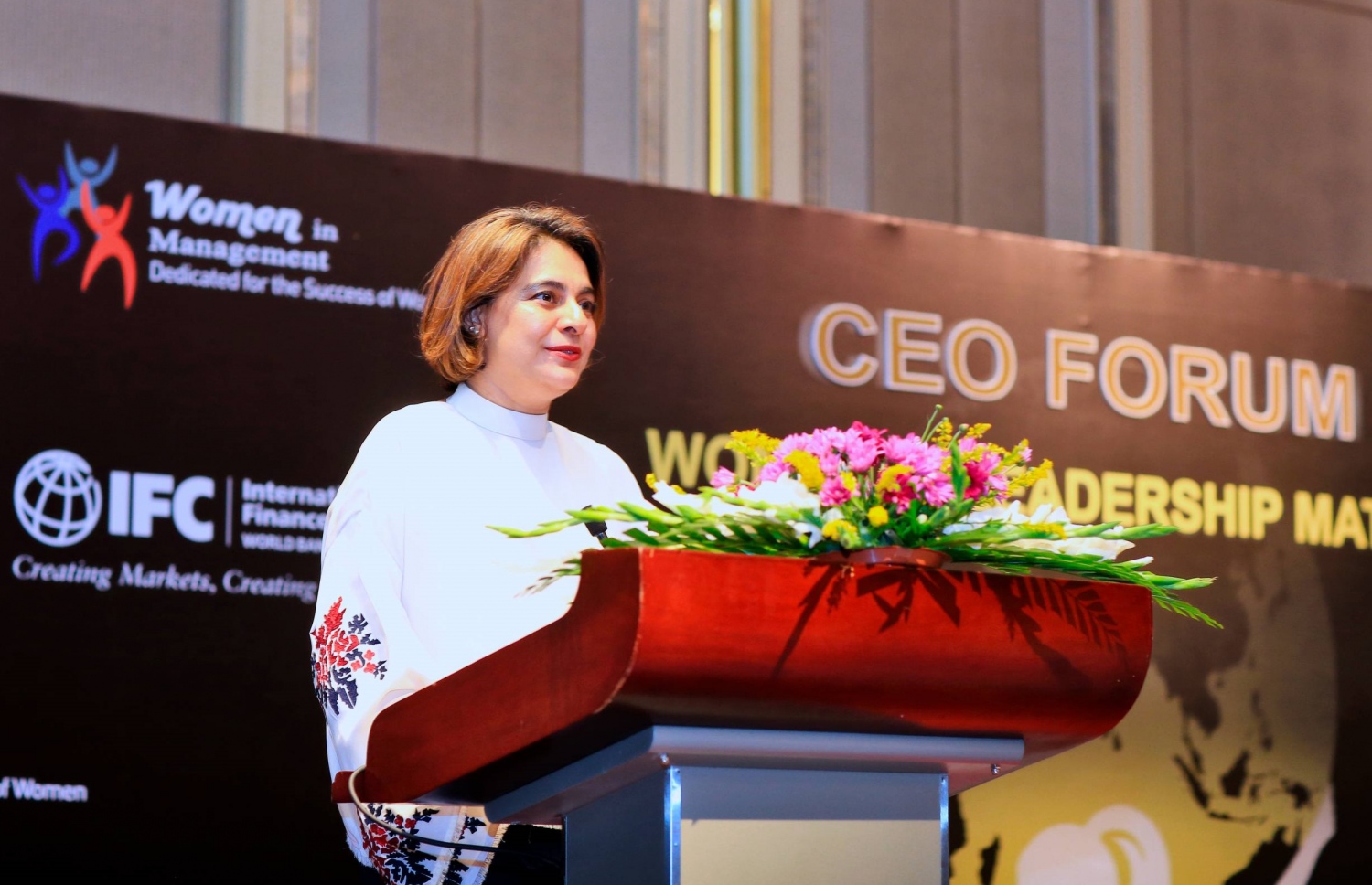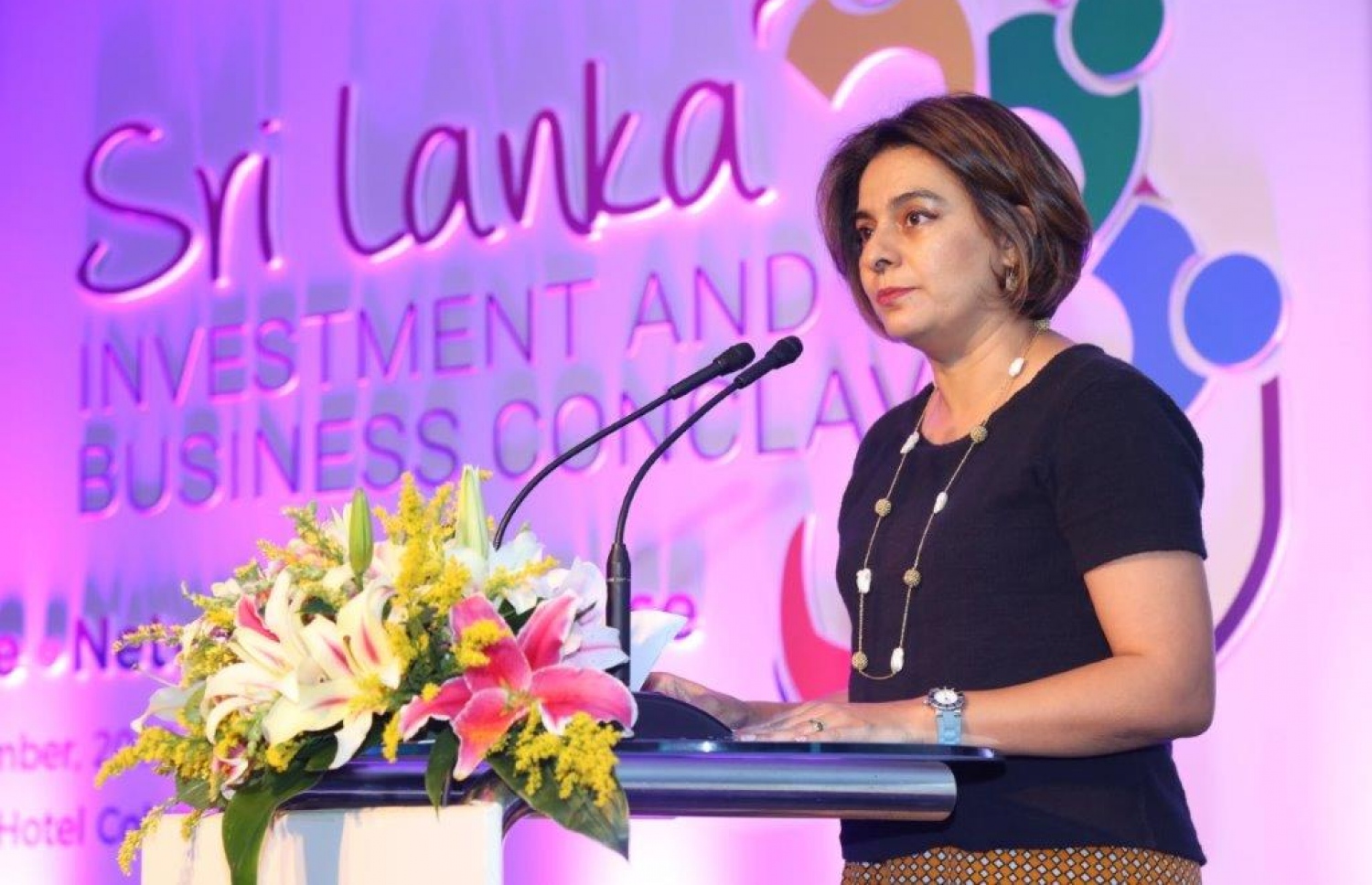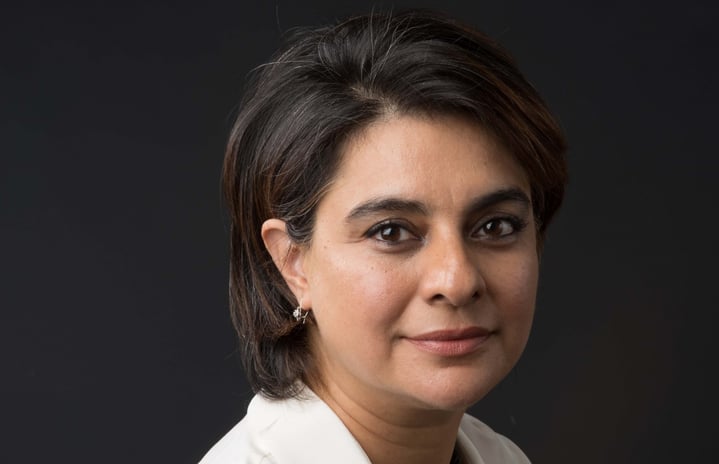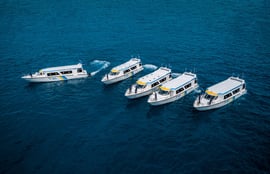The International Finance Corporation (IFC), known for its steadfast commitment to “ending extreme poverty and boosting shared prosperity”, has made a clear commitment toward assisting Maldives’ economy and on its return to prosperity, amid the ongoing global pandemic.
Recently in April, the World Bank, sister institution to IFC, projected Maldives’ economy to be the worst-hit across South Asia, due to the fiscal and economic repercussions of COVID-19.
Expressing concern for the heavily tourism-reliant island nation, the IFC has already set plans in motion to help ensure the country’s financial recovery, including the organisation’s largest investment in Maldives over the last 5 decades, as well as a generous injection into Bank of Maldives (BML).
"We recognise that efforts to revive tourism, which is the backbone of the Maldivian economy, are now at a critical point", acknowledged Amena Arif, IFC Country Manager for Maldives and Sri Lanka.
"It requires a coordinated, flexible and fast response".
To further elaborate on the specifics of what IFC’s reaction may entail, The Edition sits down with Ms. Arif to explore the plans IFC has in store from a regional perspective as well as strategies that their team of experts recommend for Maldives and the ways in which collaboration is planned to take place.
As countries around the globe continue to grapple with the unprecedented changes brought on by the health crisis, it is clear that the IFC has, accordingly, stepped up its role as a development institution. Could you elaborate on the organization's approach towards rebuilding the island nation’s fragile economy and how IFC has been moving to collaborate with partners and stakeholders based in Maldives?
“Firstly, let me say that as the largest development institution working with the private sector in emerging markets, we see a clear role for the private sector to help mitigate the impact of COVID-19”, said Arif.
“As we are only too well aware, the pandemic has caused massive social and economic disruptions worldwide, exacting a terrible toll on people and their livelihoods. This is why IFC has put in place a package of measures – worth a total of USD 8 billion – to help sustain economies and protect jobs around the globe. Our short-term goal is to help cushion the blow of the economic crisis. Overall IFC and its sister organization, the World Bank, are deploying a USD 14 billion fast track financing package to respond to immediate health and economic needs.”
“IFC has a proven track record in helping countries manage through crises and we are continuing to take the lead to create markets to deliver jobs. In the current context, we have pivoted our regular operations to mount an exceptional crisis response, focusing on relief, repositioning and helping to ensure a resilient recovery.” she said, adding that “In line with this approach, our current investments in the Maldives are designed to provide relief, preserve livelihoods and minimize market destruction.”
“In the first phase, we are working with the key players in the banking and tourism sector by shoring up liquidity to ensure availability of working capital for businesses. The reality is that no areas have been left untouched by the pandemic and we will continue to work with the private sector to identify investments and help build capacity in the Maldives".
On the subject of sustainability, IFC is investing USD 175 million in Sri Lanka and Maldives through John Keells Holdings. As JKH currently operates 4 resorts in the Maldives, the country was heartened to hear of the move. How does the IFC plan to monitor the said refurbishment of these properties, and what measures will be emphasized, to ensure that what follows is an effective model for the sector to rebuild in a better, more sustainable manner?
“As you know, IFC is an impact investor. We invest in sectors where there is clear development impact. For us, sustainability is a strategic priority across the globe. It’s not a new norm but an essential element in everything we do” explained Arif.
“In the Maldives, we have identified sustainability as a key development gap. This is also a critical part of any resilient recovery in terms of assisting the country to build back better.”
“Our engagement with JKH, which is part of IFC’s broader efforts to create quality jobs, has a sustainability component that will also boost the supply of green hotels in the Maldives to meet growing demand. JKH will adopt IFC’s green building standards – EDGE Buildings which stands for Excellence in Design for Greater Efficiencies – for its newly refurbished hotels in the Maldives.”
She added, “Going green in this way is an investment in the future and we hope JKH’s work in this area will provide a demonstration model for other hotel operators in the country.”
Considering the harsh economic regression the Maldives faces over this pandemic, the repercussions of which are hard-hitting on the private sectors in particular, what strategy does the IFC have in mind for private firms to settle the loans and over what period of time?
“Our immediate focus is on preserving livelihoods and minimizing the destruction of markets and private enterprises.”
Arif explained, “This ties in with IFC’s overarching goal to harness the private sector to improve people’s lives in developing countries. In times of crises, sustaining the operations of the viable private sector is more crucial than ever.”
“With our partners, we can step indirectly to support them, but beyond that, we work through the provision of liquidity to the financial sector that channels funding across the economy. Our support to our banking partners relies on their due diligence and credit selection. The terms that they offer are not dictated by us although we may at times restrict the use of funds to Small and Medium Enterprises (SMEs) or women-led borrowers as an example”, said the financial expert.
“Decisions on monetary policies or other financial sector actions such as moratoriums are the domain of the central banks and their governments. There is no one-size fits all solution here.”
In terms of banking, we’ve heard that the IFC has already signed an agreement to invest up to USD 50 million via BML to support the tourism sector. IFC has also extended a similar loan to Commercial Bank of Ceylon (ComBank), Sri Lanka’s largest private bank, to help SMEs. It's also been reported that over a third of this funding will be dedicated to businesses owned by women.
ComBank also has a branch in the Maldives, however, we have not yet received word as to whether such facilities would be extended to SMEs in this country with similar provisions. Given that the regression has also disproportionately affected certain groups in Maldives, as well as the struggle of local SMEs, are there any such plans outside of the hospitality lens that will further inclusivity by empowering these factions?
“Our investment in Commercial Bank of Ceylon is primarily for the parent entity in Sri Lanka where they have been working for some time to build a gender focused business line”, clarified Arif, while acknowledging, “Certainly, the need for a gender inclusion angle exists in Maldives as well”.
“However, at this time our investment with the Bank of Maldives is focused on preserving markets. For Maldives, that means a lot of businesses that directly or indirectly rely on tourism. With BML, our investment is specifically targeted at entities in the tourism value chain, including the SMEs that have suffered a severe blow because of the unprecedented crisis."
"The investment is being made in tranches. That is why we have used the qualifier up to USD 50 million".
She then reiterated, “This is not the end, but the beginning of our engagement in support of a resilient recovery for the Maldivian economy”.
“Our strategy in the Maldives revolves around three pillars: sustainability; inclusion; and connectivity. Under these strategic pillars, IFC’s program for Maldives seeks to promote inclusive and sustainable growth with a focus on tourism, food security, gender, infrastructure and climate smart solutions.”
“We remain committed to supporting the private sector in the Maldives as we renew our engagement in the country”, said Arif.

Among many challenges brought to the forefront by the pandemic, the most immediate and urgent need that registered was diversifying Maldives' economic portfolio. Without effective efforts to transform the landscape starting today, distancing Maldives’ heavy dependence on the tourism industry, which is always vulnerable to so many external factors, it is clear that we may find ourselves back at this point, a year into the future or earlier.
However, what we have observed thus far is that IFC too has chosen an easier route, that is to lend for the growth of the tourism sector. In a Maldivian context, tourism-related businesses will always have the best opportunity to borrow from banks. What are your views on this matter, and does the IFC have a particular strategy in mind, to improve Maldives’ fiscal stability in this regard?
Given that tourism ventures are far likelier to receive aid from commercial sources as the economy eventually and inevitably begins to take a turn for the better, would the organization consider providing funds for less high profile, but equally promising sectors, such as fisheries, instead?
“As the mainstay of the economy, reviving tourism is critical for the recovery and the economic stability of the country”.
“With demand and supply chains and global markets seized up around the world, it is not as easy to attract funding to this sector as it was”, Arif highlighted. “At this stage in the pandemic, this support we provided was critical to stabilize and preserve that market.”
Noting that the crisis has certainly "highlighted the fragility of a model that relies so heavily on tourism”, she revealed that “At IFC, we have been thinking about supporting economic diversification for a while and our pipeline currently has projects in areas beyond tourism that we are looking to support. One of the areas that has been thrown up as more critical relates to food security.”
“Fisheries is part of this and provides a vibrant growth path for the economy both through export generation and as a source of employment for Maldivians. We have been looking for opportunities in the private sector companies that operate in this sector and remain open to partnerships here. Of course, to do that it will be important that there is a level playing field provided to the private sector.”
Emphasising on the fact that micro, small and medium sized enterprises make up over 93 percent of all private sector businesses in Maldives, she shared that IFC “looks at how we can promote shared prosperity for all” and declared that such businesses “will be critical for future growth”
“With Malé being the 18th most densely populated city in the world, addressing the housing crisis would solve many economic and social issues around urban poverty. Renewable energy, green buildings, waste management are all significant components that require attention.”
“We've identified developmental gaps and are open to investing in all sectors where there are tangible development impacts.”
Returning back to the schemes that are already set in motion, have there been any notable challenges for the organization in disseminating the investments or acquiring favorable collaborators thus far?
Arif replied, “I think right now, COVID19 is the biggest challenge faced by everyone”.
“We are looking at relief and refocusing to restart our economy. But there is a lot more to do. The pandemic forced us to do things differently to respond in a timely manner. For example, with Bank of Maldives, IFC did the first ever completely virtual appraisal to onboard a client in South Asia.”
“This required tremendous effort from our client and our team, but we got it done in record time.”
“Not being able to do business or meetings as we are all used to is not easy”, Arif stated, offering a hardy outlook. “Virtual investments are challenging but we do not have the luxury of waiting till things are ‘normal’.”
“IFC has demonstrated its commitment to step up and be there for our partner countries at this crucial time and we will continue to do just that.”
Would you be able to reveal other private partnerships, particularly innovative and exciting endeavours with more long-term implications than that of tourism, which surely must have found its way to the discussion table, at this time?
“It has taken several years, but we are now at a stage where we have a healthy investment pipeline for the Maldives.”
“Unfortunately, these are discussions where we are not at liberty to disclose details just yet. Of course, in due time when these investments are ready for commitment, we will make the public announcement”, said Arif.

“I can just say that we want to diversify our investments in the country so they can contribute to a lasting impact for the people and the economy.”
Bearing in mind the alarm bells rung by Transparency International and other rights’ groups once grants and aid began disseminating worldwide, as well as Maldives’ own complicated history with regards to political finance, this also marks an important point of time for global financiers to stay vigilant and remain aware with regards to issues of corruption, another plague that runs rampant within developing nations. How does the IFC plan to ensure facets of accountability will be maintained, both in terms of funds allocation and resource management?
“Let me say that IFC is not in the business of grants or aid. As part of the World Bank Group, with the mandate to support the growth of the private sector, IFC’s lending and advisory is largely on commercial terms with private business clients. Occasionally, we do invest in state-owned entities, where there is clear and strong justification to do so”, confirmed Arif.
“We do provide advisory support to bring expertise or build capacity in the public sector often in collaboration with the World Bank. Part of this capacity building – for example, on promoting private sector mobilization for infrastructure – revolves around building transparent and equitable processes”.
Arif also offered the following: “Before we invest in any business, we conduct a rigorous due diligence exercise to ensure that there are no integrity issues, financial or otherwise. As an intergovernmental entity accountable to member states, we have systems in place to ensure transparency”.
Based on the World Bank estimates, as well as IFC’s own data and experiences, what sort of outlook does the organization foresee for Maldives’ business arena over the next year?
“According to the World Bank’s latest South Asia Economic Focus, the regional growth will fall to a range between 1.8 and 2.8 percent in 2020, down from 6.3 percent projected a few months ago. That would be South Asia’s worst performance in the last 40 years,” said Arif.
“Given the heavy tourism reliance it is no surprise that the Maldives will be one of the country’s worst affected in the region. There are no clear estimates yet, but there is some indication that tourism recovery in the Maldives may precede that in other places.”
Then with added optimism, she concluded “However, the outbreak has presented an opportunity to pause and rethink the country’s growth in areas beyond tourism”. In this regard, Arif’s perspective has been echoed by numerous other economic and financial experts across the globe”.
It can be viewed, she says, as “ a call to look at some of the structural issues that may be holding back the private sector and the economy.”
Perhaps you could indulge us in a likely scenario, and share your expertise with recommendations for SMEs, micro businesses and on a more macro scale
“SMEs are engines of growth, accounting for more than 80 percent of job creation in developing countries. So for us, supporting small businesses is very important.”
“Amongst the constraints that SMEs face, access to finance is a key challenge. Closing this gap is paramount” declared Arif, expressing her belief that such effort “requires close collaboration between the government and the private sector”.
Arif painted a picture - “For instance, private equity investors could improve the growth of SMEs through the knowledge and expertise they bring in. Strengthening the macroeconomic, legislative and regulatory frameworks, and a more stable policy orientation are also vital to provide policy certainty and make doing business easier for SMEs."
“Bringing in technology and business incubation would also help SMEs grow. Openness to trade and foreign direct investment, ensuring good governance, capacity and skill building would also fuel a healthier ecosystem for SMEs”.




